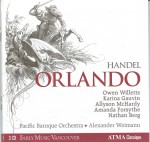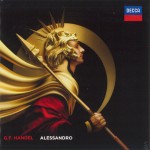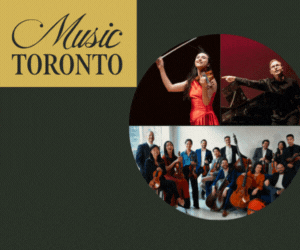
 Handel – Orlando
Handel – Orlando
Owen Willets; Karina Gauvin;
Allyson McHardy; Amanda Forsythe; Nathan Berg; Pacific Baroque Orchestra; Alexander Weimann
ATMA ACD22678
Handel – Alessandro
Max Emanuel Cencic; Julia Lezhneva; Karina Gauvin; Xavier Sabata;
Armonia Atenea; City of Athens Choir; George Petrou
Decca 4784699
Ariosto’s early 16th century epic, Orlando Furioso, has been a real quarry for opera composers and their librettists. The earliest was by Giulio Caccini, in 1625, and altogether more than 90 operas have been based on Ariosto. Handel composed three: Orlando in 1733 and Ariodante and Alcina both in 1735. In Orlando two important roles were added to what Ariosto had provided: the shepherdess Dorinda first appeared in a 1711 opera with music by Domenico Scarlatti (the music is now lost), while the wise and benevolent magician Zoroastro, a Sarastro figure, is essentially Handel’s invention.
The orchestra on the CDs of Orlando is the Vancouver-based Pacific Baroque Orchestra. It includes several musicians familiar to Toronto audiences: the violinists Chantal Rémillard and Linda Melsted and the lutenist Sylvain Bergeron. The quality of their playing is matched by the quality of the singing. Several of the singers are Canadian: the soprano Karina Gauvin, the mezzo Allyson McHardy and the bass-baritone Nathan Berg. There is also a fine performance of the shepherdess Dorinda by the American soprano Amanda Forsythe. Orlando is sung by the young English countertenor Owen Willetts; he is a revelation. I have some reservations about the casting of Berg as Zoroastro. Although Berg is an accomplished singer, the role could do with a deeper bass. It was written for the famous Antonio Montagnana and, among modern singers, David Thomas comes closest to capturing the qualities Montagnana must have had. Thomas can be heard in the complete recording of the opera conducted by Christopher Hogwood and also in the Harmonia Mundi recital record (no longer available), Arias for Montagnana.
The earlier opera, Alessandro (Alexander the Great), is sometimes seen as heroic, whereas Orlando has been labelled magical. Both labels are misleading. In Orlando Handel is more concerned with exploring Orlando’s madness and the interactions between the characters than with Alcina’s magical world. AlthoughAlessandroopens in a suitably martial manner, much of the rest of the opera focuses on the way Alessandro is torn between two women and on the rivalry between them. That rivalry mirrors that of the singers for whom the parts were written, Francesca Cuzzoni and Faustina Bordoni, “the Rival Queens.” On this recording their parts are very well taken by Karina Gauvin (as the Scythian princess Lisaura) and Julia Lezhneva (as Rossane, Alessandro’s captive). It also features two superb countertenors, Max Emanuel Cencic as Alessandro and Xavier Sabata as the Indian King Tassile. I would recommend both recordings to anyone interested in Handel or baroque opera.
Concert Note: Isabel Bayrakdarian will impersonate both Rival Queens in a series of concerts with Tafelmusik April 9 to 13.



